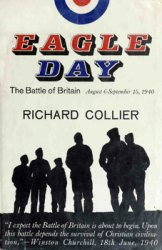The writings of Ockham are many and were produced in different places. Most of his philosophical and theological works date from his teaching in London and Oxford. His Quodlibets were begun in England but completed in Avignon. His political writings all were produced during his late years in Munich. The philosophical writings were works mainly focused on logic and natural philosophy or physics. Some of his logical works were traditional commentaries connected with Aristotle’s treatises:
(1) Exposition on Porphyry’s ‘‘Isagoge’’; (2) Exposition on the Book of Categories; (3) Exposition on the Two Books of the Perihermeneias; (4) Exposition on the Two Books of the
Sophistical Refutations. The other logical works are independent of the texts of Aristotle’s Organon. The most impressive is (1) the Summa logicae, a very lengthy unified treatise on the whole of logic. The previous general logic works of Peter of Spain, William of Sherwood, Roger Bacon, and Lambert of Auxerre are in reality collections of logical treatises on different subjects. In contrast, the Summa logicae is an integrated whole. Two other works on logic attributed to William are (2) The Compendium of Logic and (3) An Elementary Logic. The Compendium is not a summary text of the Summa logicae but a short rendition of the basic positions of Ockham’s logic. The Elementarium is a beginner’s logic text that is in agreement with Ockham’s authentic work. It is a work that leaves out any theological applications, so in this way it differs noticeably from the Summa logicae. The last two works have had their authenticity challenged, but they contain nothing that contradicts Ockham’s teachings. The author of the Elementarium refers to his own Logica and it is hard to find someone other than Ockham who holds the positions that the Elementarium and the Summa logicae hold in common.
The attention that Ockham gave to philosophical matters centered on natural philosophy. All such works were based on the doctrine of Aristotle’s Physics. He has four works in this area of study: (1) Exposition on the Books of the Physics; (2) Questions on the Books of the Physics; (3) A Summula of the Books of the Physics; and (4) Brief Summa of the Physics. Ockham’s Exposition is a long, detailed study of the text of Aristotle’s Physics, the largest of his philosophical works. The Questions follows the alternative form of a commentary: it just poses the questions that arise from the text and presents them in a form that suggests they are William’s questions rather than Aristotle’s. The Summula is an incomplete work covering only the materials of the first few books of Aristotle’s Physics. It provides the essence of Ockham’s positions in the form of an exposition. Remarks made in the prologue have led a recent specialist in Ockham’s Avignon period (Franciscan Studies 46 [1986]: 70-71) to suggest that it was written there. The Brief Summa is a sketch of each of the books of Aristotle’s Physics that one might consider a digest of the Expositio; however, it provides a summary of the whole of Book VIII which stops after chapter 2 in Ockham’s own Expositio.
William’s theological writings are likewise numerous: (1) Scriptum in primum librum sententiarum (Written Commentary on Book One of the Sentences);
(2) Reportationes in libros II-IV sententiarum (Student Accounts of His Lectures on Books II-IV of the Sentences;
(3) Seven Quodlibets; (4) Treatise on the Sacrament of the Altar; (5) Treatise on the Body of Christ (also called The Treatise on Quantity); (6) Treatise on Predestination and on God’s Foreknowledge and Future Contingents; (7) Quaestiones variae (A Collection of Various Questions). The Scriptum or Written Commentary is the text of Ockham himself. Though it is a single work, William made changes to his text which are indicated as additions or clarifications in the recent Latin edition of his works. The Reportationes for Books II, III, and IV of the Sentences are the reports or accounts of very able students. Some of the Seven Quodlibets certainly are based on disputes carried on in England but other elements and the final redaction of this work indicate that it was formally completed in Avignon. The next two works, on the Eucharist, are A Treatise on Quantity, since a great deal of the discussion in these works centers on issues of quantity related to the Eucharist, and On the Body of Christ. It is possible that these works also might have ties to Avignon. At one time both treatises together were called On the Sacrament of the Altar. The Treatise on Predestination and Foreknowledge covers much the same material as is found in discussions of God’s knowledge and power in the late distinctions of Ockham’s Scriptum on Book I of the Sentences. The Various Questions were disputed questions that were edited as parts of the Reportationes in II-IV Sententiarum back in 1495. For the most part they are found in manuscripts of the Reportationes, but they really do not belong there. In the recent edition of Ockham’s Opera theologica they are published separately along with an independent question On the Connection of the Virtues which is not found among the manuscripts that have the Reportationes.
Ockham’s political and polemical writings, dating from his years in Munich, are also many: (1) The Work of Ninety Days; (2) A Letter to the Friars Minor; (3) A Dialogue; (4) On the Teachings of Pope John XXII; (5)Compen-dium of the Errors of Pope John XXII; (6) Letter Against John XXII; (7) Letter Against Benedict XII; (8) Allegations Concerning Imperial Power; (9) Eight Questions on the Power of the Pope; (10) Treatise on the Power of Emperors and Pontiffs; (11) Consultation on a Marriage Case; (12) A Brief Declaration on Tyrannical Power.




 World History
World History









